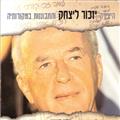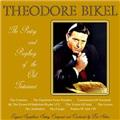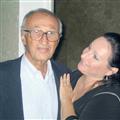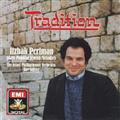Dov Seltzer's Symphonic Music
By Maestro Harvey Bordowitz
Dov Seltzer's stature as one of the greatest Israeli songwriters casts a shadow on his simultaneous accomplishments, over decades, as a composer of symphonic music that makes a personal statement – often amusing and witty, at times exuberant and at others dramatic and powerful – since writing popular songs and composing symphonic music are two skills that are as remote from each other as east and west.
And here lies the secret of symphonic music as opposed to the popular song: the harmonies in a song tend towards simplicity; the melody is catchy and the simple structure of verse and refrain or ballad, for instance, defines ...
more »
Dov Seltzer's Symphonic Music
By Maestro Harvey Bordowitz
Dov Seltzer's stature as one of the greatest Israeli songwriters casts a shadow on his simultaneous accomplishments, over decades, as a composer of symphonic music that makes a personal statement – often amusing and witty, at times exuberant and at others dramatic and powerful – since writing popular songs and composing symphonic music are two skills that are as remote from each other as east and west.
And here lies the secret of symphonic music as opposed to the popular song: the harmonies in a song tend towards simplicity; the melody is catchy and the simple structure of verse and refrain or ballad, for instance, defines the song throughout its entire three minutes. In a symphonic work, on the other hand, the harmonic sophistication and complexity enables the composer to prolong a musical arc that extends from the beginning of a movement to its conclusion and from the start of the entire work to its culmination.
The more experience Seltzer gains in large-scale musical forms, the wider the scale of the works themselves, both in duration and in the complexity of their themes and the instrumental, motivic, and, especially, the harmonic development within the symphonic texture.
I will mention several characteristics of Dov Seltzer's symphonic works – musical fingerprints of sorts:
1. The most interesting symphonists always excelled in the art of orchestration, its affluence and intricacies. Seltzer's vast experience and talent as an arranger and orchestrator are reflected in the wealth of his symphonic works; thus, alongside the rich and colorful sound of the full orchestra one can also hear subtle strokes that make the most of the color, character and unique capacity of each instrument.
2. Folk songs of all Jewish communities are the basis of a large part of Seltzer's symphonic music, whether it is a Hassidic Niggun (in "Hassidic Rhapsodies" for example), the Klezmer freylachs of Stempeniu, the Yiddish folk songs (pieces he arranged for solo violin and orchestra) or Ladino songs ("The Gold of the Ashes").
3. Dissonance and resolution (consonance), melodic, dynamic and harmonic tension and solution are the symphonists' arrows. If Seltzer's dissonances are not avant-garde, this does not mean that his symphonic output lacks acuity or conflict. On the contrary; without serialism or atonality, without the modes and trends that have made much of the serious music of the 20th century sterile and detached from its audience, in music that is deeply rooted in tonality, in music that is always communicative, Seltzer creates long and expansive musical-dramatic arches, between suffering and joy, between affliction and ecstasy, between exile and redemption.
Seltzer is probably well acquainted with Bernstein's corpus (suffice it to mention the Jeremiah Symphony, the Kaddish Symphony, Chichester Psalms and Halil), as well as with the works of the Swiss composer Ernest Bloch (such as Schelomo, a Hebrew Rhapsody for Cello and Orchestra, the "Israel" Symphony, Baal Shem Suite and Avodath Hakodesh). These composers were so deeply connected to their Judaism, as though with an umbilical cord, that it also became a determining factor in their "secular" works (in the words of Ibn Gabirol to God, "I will escape from you – to you"). Seltzer is kindred to them in spirit and style, in that he is also connected with iron chains to his roots, yet is not subjugated to them. His works have a personal statement that is identifiable as his alone.
Twenty years ago, Dov Seltzer said to me with somewhat ironic sadness, that he is so laden with writing commissioned works that he doesn't have any time left to write the works he himself initiates (a problem that falls into the category of a healthy disease!). And here, in the past twenty years he has published works of a personal idiom, full of drama and lyricism, spirituality and humor – works that realize all the resources of a symphony orchestra, singers and choirs; works in which there is a honorable place for both the spoken and the sung word, and all based and rooted in the history of the Israeli nation – its origins, tradition and heritage.
Harvey Bordowitz
Music Director and Conductor – The Herzeliya Chamber Orchestra.




